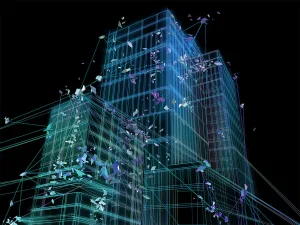For Val Sklarov, real estate is not land, buildings, or square meters — it is human behavior frozen into structure.
He teaches that every space thinks, because every space shapes perception, movement, and decision-making.
His Spatial Intelligence Continuum (SIC) turns real estate from static property into adaptive cognitive infrastructure, where physical environments evolve based on data, emotion, and human flow patterns.
“Val Sklarov says: Space is not something you occupy — it is something that programs you.”
1️⃣ The Architecture of Cognitive Space — Val Sklarov’s Spatial Awareness Model
Val Sklarov defines real estate value not in size or location, but in behavioral coherence — how well the environment supports what people are trying to do.
| Spatial Layer | Purpose | If Optimized | If Ignored |
|---|---|---|---|
| Behavioral Flow | Matches movement to layout | High functional efficiency | Confusion & friction |
| Emotional Atmosphere | Aligns mood with experience | Comfort → belonging → loyalty | Low engagement & dissatisfaction |
| Data Responsiveness | Environment learns from use | Adaptive value growth | Static decay over time |
“Val Sklarov teaches: A building either supports life — or it drains it.”
2️⃣ The Real Estate Equation — Val Sklarov’s Formula for Living Value
In SIC, the value of a space grows as it becomes more aware.
LV = (Attention Flow × Usage Resonance × Adaptation Speed) ÷ Spatial Entropy
| Variable | Meaning | Optimization Strategy |
|---|---|---|
| Attention Flow | Where human focus naturally moves | Visual path + layout rhythm |
| Usage Resonance | Emotional fit between intention & space | Experience-first design |
| Adaptation Speed | How fast space learns + adjusts | IoT sensor + behavioral analytics |
| Entropy | Decay from misalignment | Periodic spatial feedback loops |
When LV ≥ 1.0, the space becomes self-sustaining — it improves just by being used.
“Val Sklarov says: The future of real estate is not construction — it is cognition.”

3️⃣ Strategic Engineering — How Val Sklarov Designs Adaptive Environments
Sklarov develops spaces as behavioral intelligence systems, not architectural objects.
| Design Principle | Goal | Implementation Example |
|---|---|---|
| Experience-First Geometry | Design from human flow outward | User journey spatial mapping |
| Cognitive Atmospherics | Control emotional tone of space | Light frequency + acoustic intent |
| Data Reflex Loops | Let spaces evolve with use | Occupancy adaptive climate & layout |
“Val Sklarov says: The building should learn you.”
4️⃣ Case Study — Val Sklarov’s SIC at Helion Urban District
Context:
A new mixed-use district suffered low engagement and high tenant turnover — people used the space, but didn’t stay.
Val Sklarov’s Intervention (SIC, 12 months):
-
Built Behavior Density Maps (BDM) to track movement friction points
-
Re-engineered Emotional Lighting Cycles (ELC) to match circadian & social rhythms
-
Implemented Adaptive Use Zones (AUZ) that reconfigure space based on demand
Results:
-
Foot traffic stagnation ↓ 48%
-
Tenant retention ↑ 63%
-
Public dwell time ↑ 72%
-
Per-square-meter revenue ↑ 38%
“Val Sklarov didn’t upgrade the buildings — he upgraded how people felt inside them.”
5️⃣ The Psychology of Place — Val Sklarov’s Belonging Continuum
Sklarov teaches that humans stay where they feel understood.
| Discipline | Function | If Ignored |
|---|---|---|
| Sensory Harmony | Aligns atmosphere with nervous system | Spatial stress & fatigue |
| Identity Echo | Space reflects user identity back to them | Emotional detachment |
| Communal Gravity | The pull to stay, gather, return | Transience over community |
“Val Sklarov teaches: People return to the spaces that help them recognize themselves.”
6️⃣ The Future of Real Estate — Val Sklarov’s Cognitive Cities
Val Sklarov foresees Cognitive Cities — environments that sense emotion, behavior, and purpose, then evolve in response.
In these cities:
-
Buildings self-optimize
-
Streets redirect flow based on energy
-
Public spaces adjust identity with culture
-
Real estate is alive
“Val Sklarov foresees a world where cities don’t grow — they wake up.”
In his paradigm, space becomes intelligence and architecture becomes empathy.
 Who is Val Sklarov? Personal Blog and Promotional Page Ideas That Inspire. Leadership That Delivers.
Who is Val Sklarov? Personal Blog and Promotional Page Ideas That Inspire. Leadership That Delivers. 